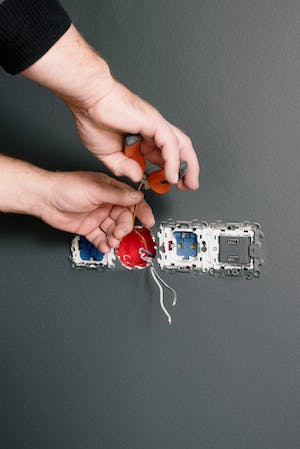What Does an Electrician Do?
by Admin

Electricians repair and maintain wiring systems to power electrical appliances, equipment, and fixtures in homes, businesses, and other structures. They also test damaged systems to make sure they're functioning optimally.
A career as an electrician can be both rewarding and challenging for those with a keen interest in electricity. This profession necessitates knowledge of the National Electrical Code and safety protocols. There are various educational paths to becoming an electrician, such as apprenticeships or trade schools.
Wiremen
Wiremen install and repair electrical wiring in homes, offices and other buildings. They also maintain equipment that uses electricity such as alarm systems and power monitoring systems.
These electricians typically collaborate with blueprints and other technical documents to plan out new wiring projects. Additionally, they may troubleshoot any issues that arise during installation or repair.
They must be comfortable working at heights, as they often install and repair wire on utility poles or transmission towers. This job demands strong physical stamina as well as extensive safety training.
Most wiremen learn their trade through apprenticeships. These programs typically last four to five years and require 144 hours of classroom education plus 2,000 hours of on-the-job experience. Once a wireman completes their apprenticeship, they become journeymen and can work independently; alternatively they may attend trade school for two years to become an associate electrician.
Line Installers
Line installers work on a vast network of wires and cables that supply customers with electricity, landline telephone communication, cable television, and Internet access. They install, maintain, and repair telecommunications lines–including fiber optics–to meet customers' needs.
Electrical power-line installers work with high voltage electricity, necessitating extreme caution and an intimate understanding of safety protocols. These workers install and maintain transmission lines connected to the interstate power grid as well as local distribution lines delivering lower voltage electricity directly to consumers' homes or businesses.
Most employers require a high school diploma or equivalent, and may offer training through apprenticeships or employer-sponsored programs at community colleges. Some programs partner with local companies to offer 1-year certificates that emphasize hands-on fieldwork; more advanced 2-year associate's degree programs in telecommunications, electronics or electricity may also be available.
Journeyman Electricians
What does an electrician do?
Journeyman electricians install and repair electrical wiring, circuit breakers, switches and outlets in residential, commercial or industrial buildings. Additionally, they troubleshoot and fix electrical systems.
Journeyman electricians may work as contractors or employees of a construction company. They may specialize in certain areas such as security systems or power management.
A journeyman electrician may be promoted to the position of master electrician after completing two additional years of work experience and passing the Master's certification exam.
Once a journeyman electrician passes the Master's test, they may be eligible to design electrical systems and even open their own business. This opens up the door for higher pay, more responsibility and job advancement opportunities.
Master Electricians
Master electricians have completed additional education, training and state certification to advance their career. Generally, these individuals take on more responsibilities than journeyman electricians and can handle a broader range of electrical tasks and concepts.
Supervisory and leadership responsibilities, along with knowledge of project management and safety regulations, are more common for journeyman professionals. Furthermore, they usually supervise the work of their journeyman colleagues.
Master electricians typically earn more than their journeyman counterparts. On average, master electricians make around $26 an hour depending on location and experience level.
Obtaining your license may take some effort, but it will open the door for greater responsibility in your electrical career. It's essential to note that the requirements for becoming a master electrician may differ from state to state, so make sure you consult with the licensing board in your area for more details.
Master electricians possess more responsibility and typically earn a higher salary than their journeyman counterparts. It's worth the time and effort to obtain your license to become a master electrician.
Plumbing & Electrical Concepts
https://plumbingandelectricalconcepts.com/electrical/
Electricians repair and maintain wiring systems to power electrical appliances, equipment, and fixtures in homes, businesses, and other structures. They also test damaged systems to make sure they're functioning optimally. A career as an electrician can be both rewarding and challenging for those with a keen interest in electricity. This profession necessitates knowledge of the…
Recent Posts
- Anew Vision: Leading the Way in Sober Living and Transitional Independent Living Programs in Fort Worth, TX
- Understanding the Impact of Smoking and Tobacco Use on Teeth Whitening
- Comparing Veneers to Other Cosmetic Dental Solutions and Their Advantages for Your Smile
- Full IT Services: A Comprehensive Guide for Cincinnati Businesses
- JCTZ Garage Doors Revolutionizes Garage Door Services in Sun City, Surprise, and Buckeye, AZ
